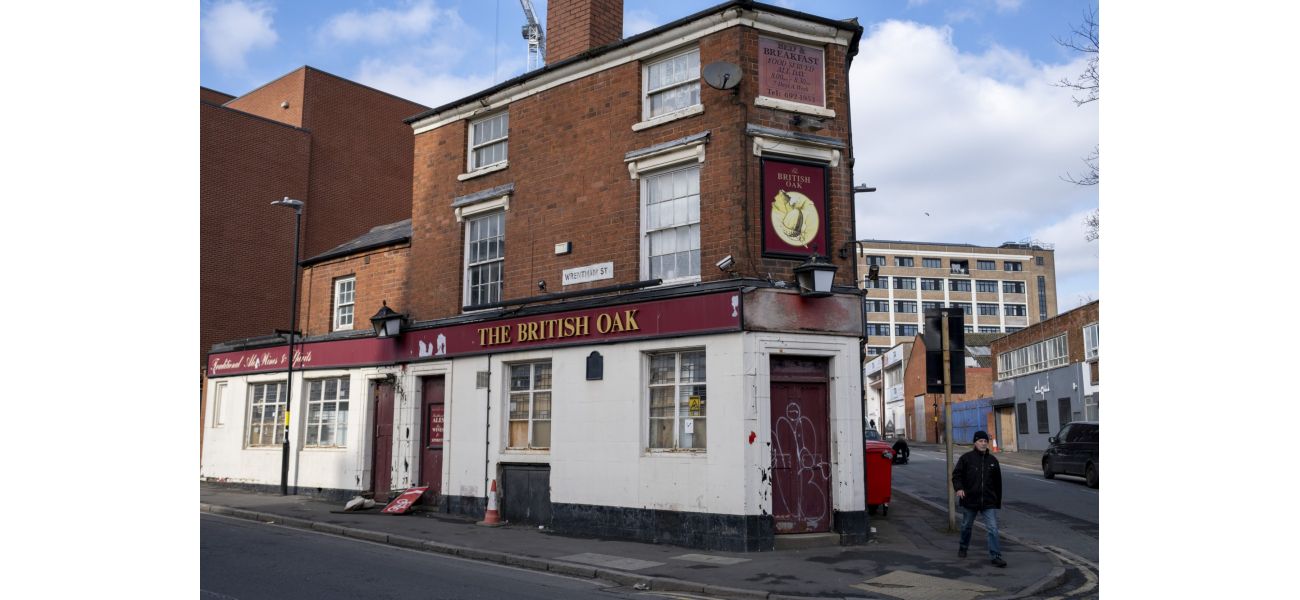Many pubs closing weekly spells trouble for High Streets.
Drugstores, bars, and financial institutions are experiencing the most impact.
September 12th 2024.

In the bustling city of Birmingham, a once-popular pub in Digbeth has recently closed its doors, adding to the growing number of businesses that have left the UK High Streets. This year alone, almost 7,000 shops have ceased operations in cities and towns across the country, marking a significant shift in the retail landscape. The bustling shopping hubs, which were once the heart of local communities, are now struggling to keep up with the rise of online shopping, soaring expenses, and the impact of the ongoing coronavirus pandemic.
According to recent data from PwC, a leading accountancy firm, a staggering 6,945 shops have shut down in the first six months of this year alone. This means an average of 38 shops have closed each day, a slight increase from the previous year's rate of 36 shops per day. While there has been a slight rise in the number of new store openings, with 25 per day across the UK, it still does not make up for the net closure of 12 stores per day. The worst affected businesses have been pharmacies, with an average of 18 closures per week, followed by pubs and banks with 16 and nine closures per week, respectively. Even estate agents have had to close their offices due to the challenging economic climate.
One of the notable closures this summer was the announcement of over 300 Boots pharmacies shutting down, along with 237 Lloyds Pharmacy branches inside supermarkets last year. This trend has been reflected across various industries, with only three new convenience stores and one cafe chain opening to replace the lost businesses. However, there is a glimmer of hope as the overall number of store closures has remained stable for the past three years, according to PwC.
In the midst of this changing retail landscape, online shopping continues to dominate consumer spending, outpacing physical stores every year. The only location that has seen an increase in footfall is retail parks, while other shopping sites continue to struggle. Rick Jones, the leader of hospitality, sport, and leisure at PwC UK, suggests that consumer behavior has shifted towards seeking new experiences and spending quality time with loved ones. However, this has not translated into positive results for the hospitality sector, as data shows a continued net closure of businesses in the first half of the year, mainly due to rising energy and labor costs.
As the high street continues to evolve, there will be opportunities for new businesses to establish themselves. However, for existing businesses, it has become a matter of survival as they adapt to the changing landscape. In London, the closure of 13 pubs this summer due to financial troubles serves as a reminder of the challenges faced by the hospitality industry. Across the UK, more pubs are also facing the same fate, citing increasing energy prices and the overall cost of living crisis as the main reasons for their struggles.
According to recent data from PwC, a leading accountancy firm, a staggering 6,945 shops have shut down in the first six months of this year alone. This means an average of 38 shops have closed each day, a slight increase from the previous year's rate of 36 shops per day. While there has been a slight rise in the number of new store openings, with 25 per day across the UK, it still does not make up for the net closure of 12 stores per day. The worst affected businesses have been pharmacies, with an average of 18 closures per week, followed by pubs and banks with 16 and nine closures per week, respectively. Even estate agents have had to close their offices due to the challenging economic climate.
One of the notable closures this summer was the announcement of over 300 Boots pharmacies shutting down, along with 237 Lloyds Pharmacy branches inside supermarkets last year. This trend has been reflected across various industries, with only three new convenience stores and one cafe chain opening to replace the lost businesses. However, there is a glimmer of hope as the overall number of store closures has remained stable for the past three years, according to PwC.
In the midst of this changing retail landscape, online shopping continues to dominate consumer spending, outpacing physical stores every year. The only location that has seen an increase in footfall is retail parks, while other shopping sites continue to struggle. Rick Jones, the leader of hospitality, sport, and leisure at PwC UK, suggests that consumer behavior has shifted towards seeking new experiences and spending quality time with loved ones. However, this has not translated into positive results for the hospitality sector, as data shows a continued net closure of businesses in the first half of the year, mainly due to rising energy and labor costs.
As the high street continues to evolve, there will be opportunities for new businesses to establish themselves. However, for existing businesses, it has become a matter of survival as they adapt to the changing landscape. In London, the closure of 13 pubs this summer due to financial troubles serves as a reminder of the challenges faced by the hospitality industry. Across the UK, more pubs are also facing the same fate, citing increasing energy prices and the overall cost of living crisis as the main reasons for their struggles.
[This article has been trending online recently and has been generated with AI. Your feed is customized.]
[Generative AI is experimental.]
0
0
Submit Comment





